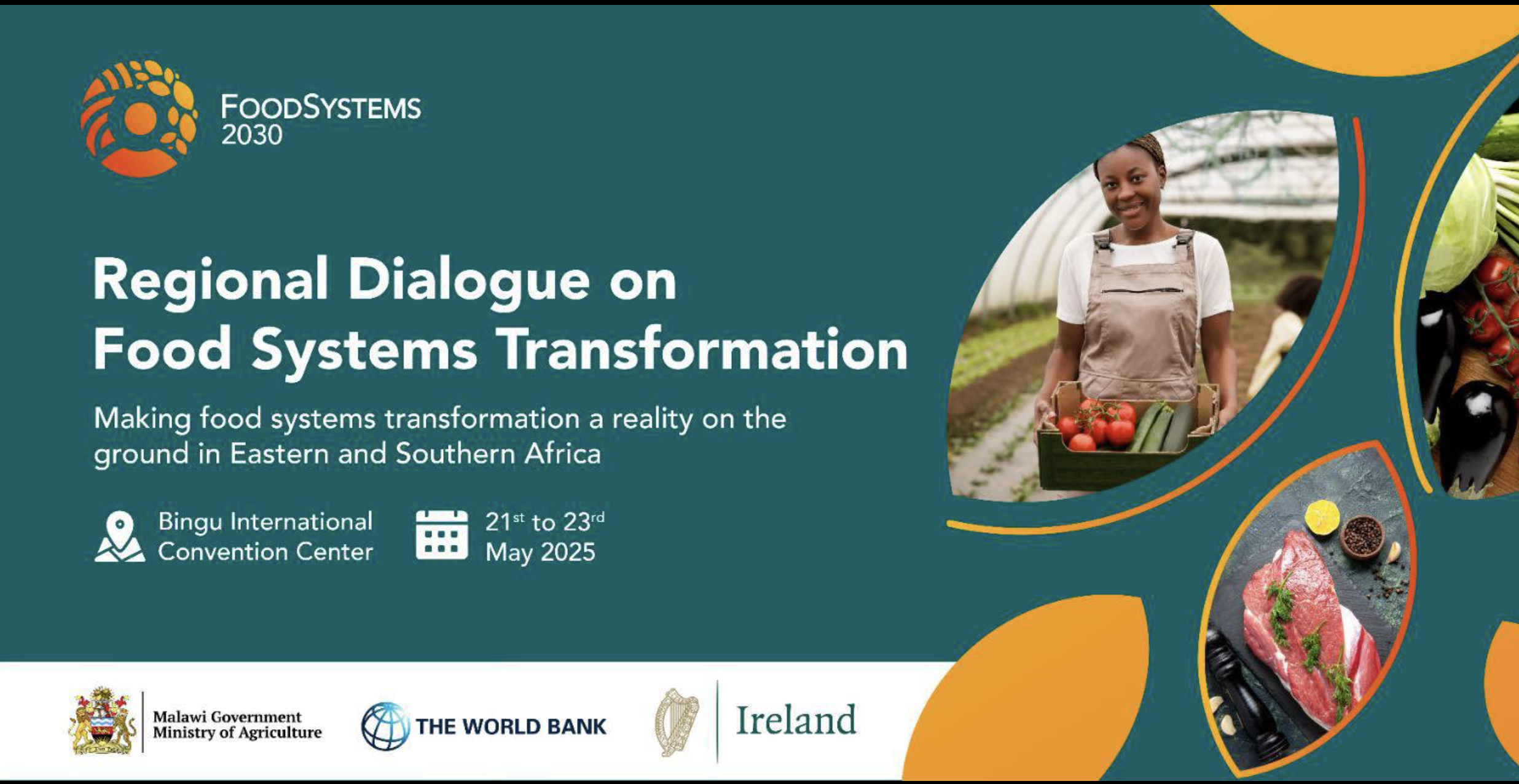
By Special Correspondent | Lilongwe, Malawi — May 21, 2025
In a powerful presentation during the Regional Dialogue on Food Systems Transformation in Lilongwe, Dr. Moses Siambi of the International Maize and Wheat Improvement Centre (CIMMYT) laid out a transformative vision for building resilient, nutrition-focused agriculture systems through public-private-producer partnerships in seed development and distribution.
Dr. Siambi, a distinguished agronomist and Africa-focused agricultural researcher, took the audience on a detailed journey through the VACS Seed Systems Initiative, implemented in collaboration with the Seed Systems Group (SSG) and key national research partners. The project, which focuses on expanding smallholder access to climate-resilient and nutrient-dense crop varieties, is emerging as a continental model for integrating science, market demand, and farmer empowerment.
“The future of food systems transformation lies not just in policy, but in the seed,” Dr. Siambi opened. “If we get seed systems right, we will unlock productivity, nutrition, and rural prosperity all at once.”
Seeding Transformation: Why the Right Seeds Matter
The VACS (Variety Adoption and Commercialization Scaling) program targets “opportunity crops”—those with high nutritional and economic potential such as sorghum and legumes—especially suited for Africa’s semi-arid and dryland zones.
What distinguishes VACS from other agricultural interventions is its systems approach: combining seed research, farmer training, private sector engagement, and market development into a unified model.
“Dryland cereals like sorghum are not only drought-tolerant, but when processed into feed, they become key inputs for poultry and brewery sectors,” said Dr. Siambi. “Legumes like cowpeas and pigeon peas are high in protein and can transform animal feed and human diets alike.”
These crops, once considered marginal, are now being repositioned as strategic to Africa’s food security and agro-industrial expansion.
Training and Outreach: Building Knowledge at Scale
VACS is already showing impact at scale:
- Over 10,700 smallholder farmers have been trained on climate-resilient seed production, soil health, and quality assurance protocols.
- More than 200 Village-Based Advisors (VBAs), extension officers, and technical staff from Ministries and research agencies have been capacitated.
- A vibrant community of practice is emerging, linking farmers to inputs, training, and output markets.
“These are not generic trainings,” Dr. Siambi emphasized. “We are teaching farmers about climate adaptation, formal and informal seed multiplication, and the nutritional value of what they produce.”
He pointed out that the training content goes beyond yield-focused agriculture to integrate nutrition-sensitive and climate-smart practices—a crucial shift as the continent battles hunger, malnutrition, and environmental degradation.
Seed Systems and the Private Sector: Still a Missing Link
Despite the early wins, Dr. Siambi raised an important red flag: limited private sector investment in seed production for opportunity crops.
“Only a handful of seed companies are truly investing in scaling these improved varieties,” he stated. “Most are still focused on maize and a few high-demand cereals.”
He called on African governments, donors, and investors to de-risk and incentivize seed production for legumes, sorghum, and millet—crops that are resilient and nutrient-dense, but underutilized in commercial markets.
According to Siambi, the path forward must include:
- Economic incentives such as grants or subsidies to stimulate commercial interest.
- Public-private partnerships to ensure that seed companies have access to breeder and foundation seed.
- Streamlined certification processes to speed up varietal release and distribution.
“If we don’t create viable commercial models around these crops, the improved varieties will remain in labs and trial plots—not in farmers’ fields,” he warned.
Markets, Not Just Inputs: Building End-to-End Value Chains
Another unique feature of the VACS approach is its attention to market development. Dr. Siambi was clear: “Farmers grow what they can sell. So we must ensure that our seed systems are linked to viable output markets.”
To that end, VACS is working with:
- Poultry producers to absorb legume and cereal-based feed inputs.
- Brewery and food processors to develop value-added products using climate-resilient crops.
- Trader networks and cooperatives to aggregate supply and improve farmer bargaining power.
The ultimate goal, Dr. Siambi stressed, is circular agriculture—where each actor in the value chain benefits and contributes to sustainability.
Looking Forward: Scaling Across Countries
VACS is currently being implemented in several African countries, with prioritized interventions in Kenya, Tanzania, Malawi, Zambia, and others.
The program’s scaling strategy involves deep collaboration with national agricultural research systems (NARES), local seed companies, extension agencies, and community-based organizations.
In Tanzania, for example, VACS partners with institutions like TARI FM1 and TARI GG2, as well as seed companies like Biashara and Akeri, to ensure that climate-resilient varieties are tested, adapted, and delivered to farmers through both formal and informal channels.
“We don’t believe in copy-paste solutions,” Dr. Siambi stated. “Each country’s ecology, seed legislation, and market structure is different. But the core model—public-private-producer collaboration—is universal.”
Final Thoughts: A Call for Bold, Coordinated Action
Dr. Siambi concluded his presentation with a call for regional alignment, urging African nations to harmonize seed laws, align subsidy programs with nutrition goals, and integrate VACS-like models into national food systems strategies.
“This is not just about seed—it is about sovereignty,” he said. “When African farmers grow their own resilient, nutritious crops, they are not just feeding their families. They are feeding the future.”
As participants applauded, it was clear that the message had resonated. The seed of transformation, it seems, has been planted.

2 thoughts on “Moses Siambi Outlines Seed System Revolution to Drive Africa’s Food and Nutrition Security”
Comments are closed.